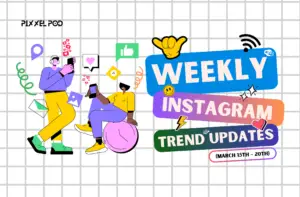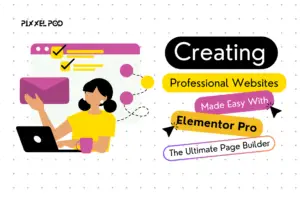Table of Contents
ToggleLast Updated on December 21, 2024 by Admin
In recent years, social media platforms have become major sources of information, entertainment, and even personal well-being. Among these platforms, Twitter has remained a prominent hub for real-time updates, opinions, and trending topics. As we move further into the 21st century, discussions surrounding health and wellness have grown significantly across various social platforms. Twitter, in particular, has seen a noticeable rise in health and wellness-related conversations.
In light of this trend, Twitter has shared new insights into how discussions on these topics have evolved on the platform. From mental health awareness to fitness tips, nutritional advice, and even holistic health, Twitter has become a space where individuals, influencers, and brands are shaping the conversation around health and well-being. In this article, we will explore the key findings from Twitter’s latest research and what this shift means for individuals, brands, and marketers alike.
The Growing Focus on Health and Wellness
Health and wellness discussions are not new, but the way people engage with them on social media has seen significant shifts. Historically, these conversations were confined to healthcare professionals or wellness experts, but the digital age has democratized access to information. Today, anyone can share their experiences, seek advice, or join in global conversations about health, fitness, and overall well-being.
Twitter’s insights reveal that these conversations are increasingly taking place not just in response to global health events like the pandemic but as a part of a larger, ongoing movement. People are talking about everything from physical fitness to mental health, sustainable diets, sleep hygiene, and self-care practices.
Key Insights into the Rise of Health and Wellness Tweets
1. Mental Health Awareness Is on the Rise
One of the most significant trends identified by Twitter is the surge in conversations related to mental health. The stigma surrounding mental health has gradually been breaking down over the past few years, and this has been reflected in the types of discussions happening on the platform.
Key Findings:
- Increased Tweet Volume: Mental health-related discussions have grown by 50% over the past two years on Twitter.
- Topics: Conversations cover a wide range of mental health issues, from anxiety, depression, and stress management to more specific topics like therapy, mindfulness, and self-compassion.
- Hashtags: Popular hashtags like #MentalHealthMatters, #EndTheStigma, and #SelfCareSunday have helped amplify these discussions.
This shift is partly driven by the growing number of individuals opening up about their struggles and seeking advice and support online. Many mental health professionals are also using Twitter to share valuable resources and raise awareness about mental well-being. Brands and influencers in the health and wellness sector are increasingly addressing mental health as part of their overall strategy, acknowledging the importance of supporting people in their journey toward emotional and psychological well-being.
2. Fitness Conversations Are Expanding Beyond Traditional Workouts
While fitness has always been a popular topic on Twitter, the types of conversations are becoming more diverse. Instead of focusing solely on intense workouts or gym routines, Twitter users are increasingly discussing fitness in more holistic and inclusive ways.
Key Findings:
- Inclusive Fitness: There’s a rise in tweets related to body positivity and fitness at all shapes, sizes, and levels. The conversation is shifting towards sustainable health and fitness practices, rather than extreme dieting or quick fixes.
- Home Workouts: As the pandemic led to more people working out at home, discussions around home fitness equipment, virtual classes, and workout apps spiked.
- Mental and Physical Fitness Intersection: Many users are discussing how physical fitness intersects with mental health, with people sharing stories about how exercise has helped manage anxiety, depression, and stress.
The increased focus on fitness is also tied to a broader trend of self-care, as more individuals are realizing the importance of taking care of their physical health as a means to improve their mental well-being.
3. Nutrition and Diet Advice Continue to Dominate
Alongside fitness, nutrition remains one of the most discussed topics on Twitter. The platform has seen a significant rise in users sharing tips, recipes, and diet plans, as well as engaging in debates about various eating trends.
Key Findings:
- Diet Trends: Topics like keto, veganism, intermittent fasting, and plant-based diets are frequently discussed. Twitter users often share their personal experiences, results, and challenges related to these diets.
- Health at Every Size: Similar to the fitness conversation, there has been a noticeable rise in discussions about health at every size (HAES). People are moving away from diet culture and focusing on balanced, sustainable nutrition instead.
- Recipe Sharing: Users are increasingly posting healthy recipes, meal prep tips, and even photos of their meals, contributing to a growing culture of healthy eating.
Nutrition discussions on Twitter are not just about quick weight-loss tips, but rather holistic approaches to well-being. People are looking for balanced diets that support their overall health, leading to a more inclusive and supportive environment for discussing food and health.
4. Holistic Health Practices Are Gaining Traction
Another notable trend in Twitter’s health and wellness conversations is the rise of holistic health practices. Users are increasingly turning to alternative therapies, mindfulness practices, and self-care routines as part of their overall health and wellness journey.
Key Findings:
- Mindfulness and Meditation: Discussions about mindfulness, meditation, and breathing exercises have grown significantly. Hashtags like #MindfulMonday and #MeditationPractice have become widely popular.
- Alternative Therapies: Users are also talking about alternative therapies such as acupuncture, aromatherapy, and herbal medicine, looking for natural ways to maintain balance and wellness.
- Self-Care Routines: Beyond fitness, self-care has emerged as a critical aspect of health. Users are discussing skincare routines, relaxation techniques, and mental wellness practices that help them manage stress and improve quality of life.
The rise in holistic health conversations on Twitter suggests that people are looking for well-rounded approaches to wellness that consider the mind, body, and spirit. This shift has led to a growing interest in mindfulness apps, wellness products, and services designed to support overall well-being.
What Does This Mean for Brands and Marketers?
The rise of health and wellness discussions on Twitter presents significant opportunities for brands and marketers in the wellness space. Here are a few key takeaways for leveraging this growing trend:
1. Engage Authentically with Your Audience
As the conversation around health and wellness becomes more inclusive, people are looking for authentic, trustworthy brands. Brands that share genuine insights, engage in meaningful conversations, and offer practical advice related to mental health, fitness, and nutrition will find their audience more receptive.
2. Focus on Long-Term Health and Well-Being, Not Quick Fixes
Twitter users are increasingly rejecting the “quick fix” mentality in favor of long-term health and sustainable wellness practices. Brands that promote realistic, sustainable approaches to wellness will resonate better with consumers.
3. Use Twitter to Promote Community and Support
Health-related discussions on Twitter are often supportive, with people coming together to share experiences and advice. Brands can foster a sense of community by creating spaces where users feel heard and supported in their wellness journeys. Engaging in two-way conversations, rather than just promoting products, will be key to building long-term relationships with your audience.
4. Highlight Mental Health as a Priority
Given the rise of mental health conversations on Twitter, brands can differentiate themselves by openly discussing mental health in their marketing efforts. Supporting mental health initiatives, sharing helpful resources, and creating campaigns that highlight emotional well-being can make a significant impact.
Final Thoughts
The rise of health and wellness discussions on Twitter reflects a larger cultural shift towards prioritizing overall well-being, both physical and mental. From fitness tips and dietary advice to mindfulness practices and mental health awareness, people are engaging in more holistic, inclusive conversations about their health and wellness journeys.
For brands, this presents an incredible opportunity to connect with a passionate, health-conscious audience. By engaging authentically, offering valuable content, and fostering a sense of community, businesses can tap into the growing conversation around health and wellness on Twitter, building trust and loyalty in the process. As the dialogue around health continues to evolve, it’s clear that platforms like Twitter will remain central to shaping how individuals and brands think about and engage with well-being.







